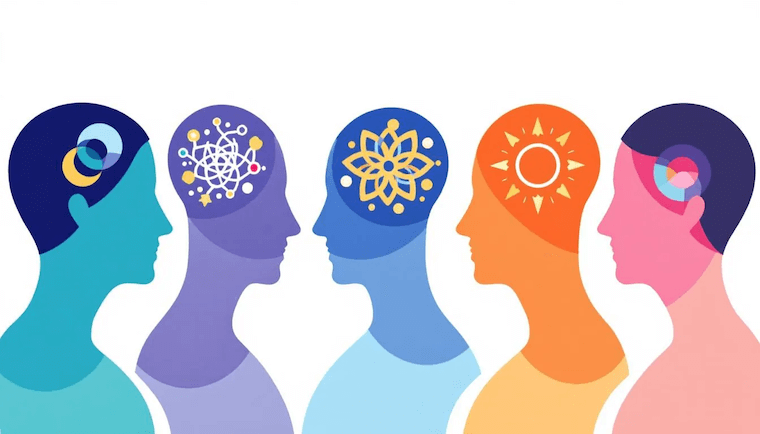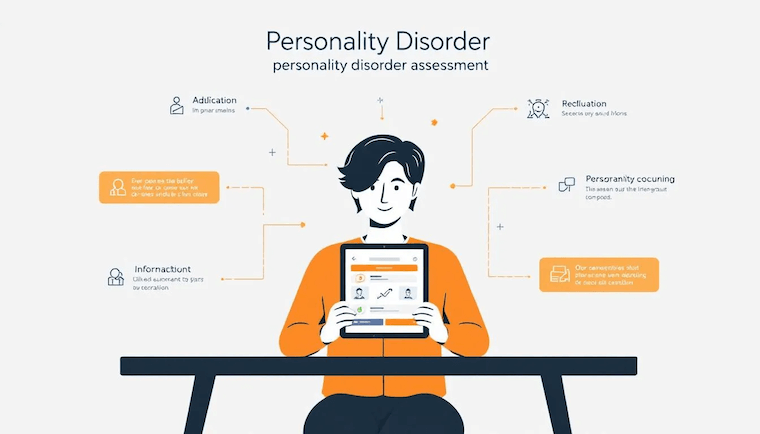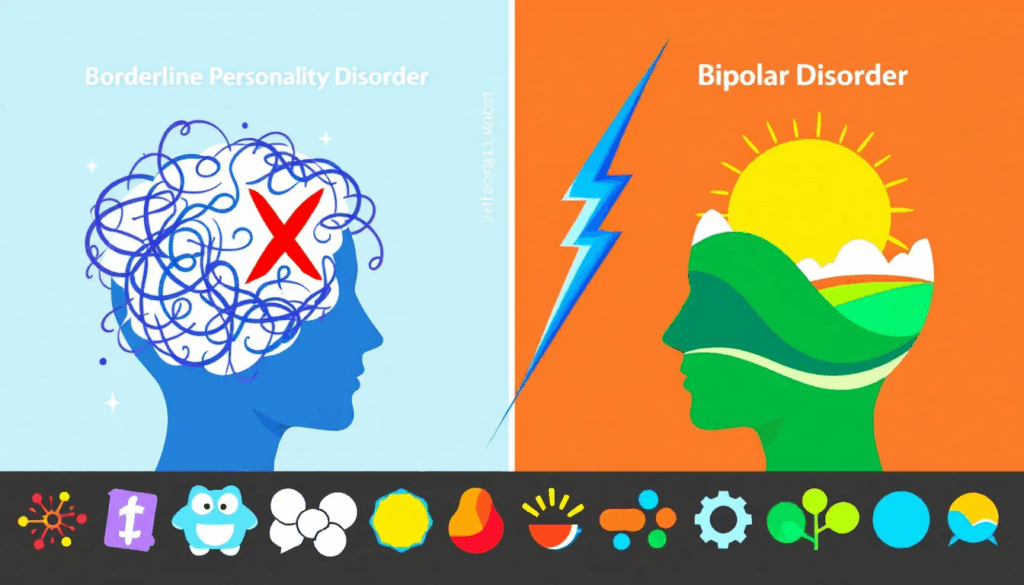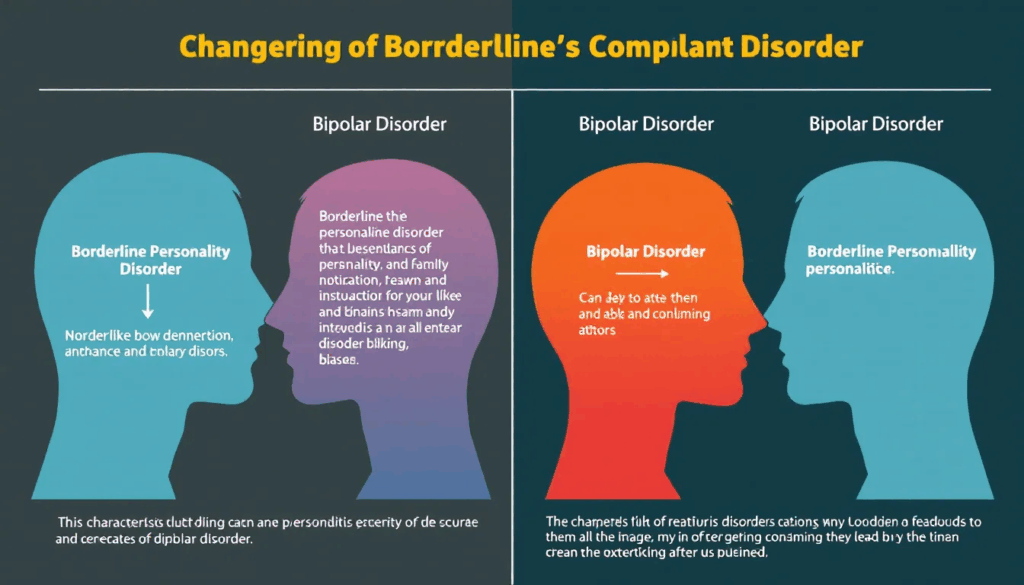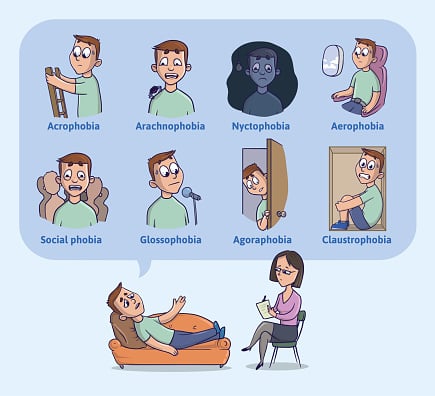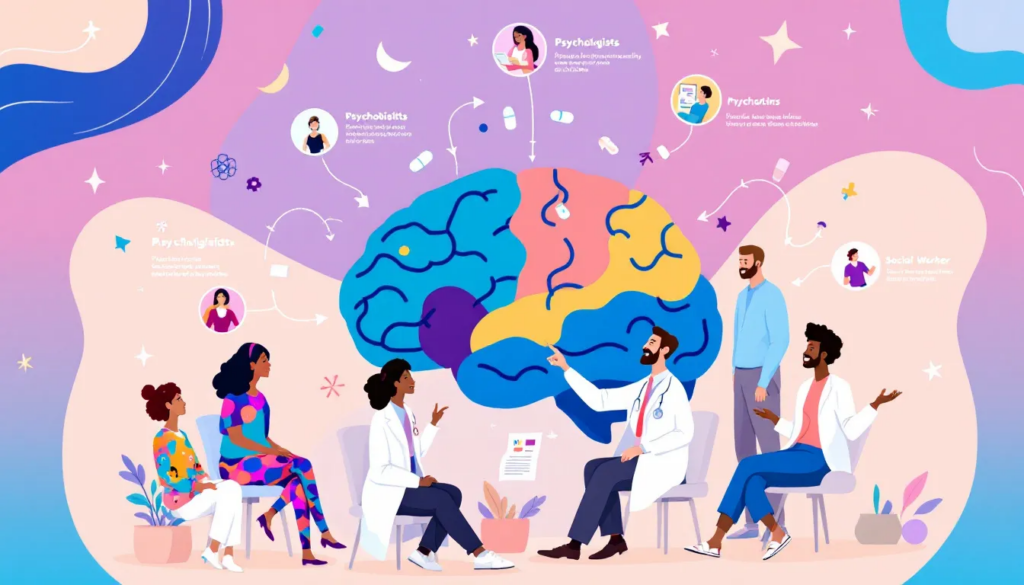Do I need mental health treatment? If shifts in mood, behavior, or thoughts disrupt your daily life, professional help might be necessary. This article will guide you on recognizing symptoms, deciding when to seek help, and understanding treatment options.
Key Takeaways
Recognizing symptoms of mental health issues varies by age group and can include changes in behavior, mood, and performance, necessitating proactive intervention.
Early recognition of persistent mental health problems, such as sadness lasting over two weeks or significant lifestyle disruption, is critical for seeking professional help.
Effective treatment for mental health conditions typically combines psychotherapy, medication, and lifestyle modifications, while immediate help is crucial in crises, especially for suicidal thoughts.
Understanding Mental Health

Mental health refers to the overall wellness of our thoughts, behaviors, and feelings. It encompasses how we think, feel, and behave, significantly influencing our day-to-day activities and overall functioning. When our mental health is compromised, it can lead to emotional, psychological, and social challenges that affect every aspect of our lives. For tips and strategies on improving mental health, professional guidance is available.
Various factors can influence changes in mental health, including genetics, environmental conditions, and personal life experiences. These changes can manifest as mental health conditions, which disrupt daily life through alterations in thinking, feeling, or behavior. Symptoms of mental health disorders can vary significantly across different age groups, affecting how individuals engage with their world.
Recognizing that symptoms can impact daily activities is crucial, as it causes distress and hampers normal functioning. Understanding these fundamentals helps identify when something might be wrong, allowing us to take steps for a diagnosis to address it.
Recognizing Symptoms of Mental Health Issues
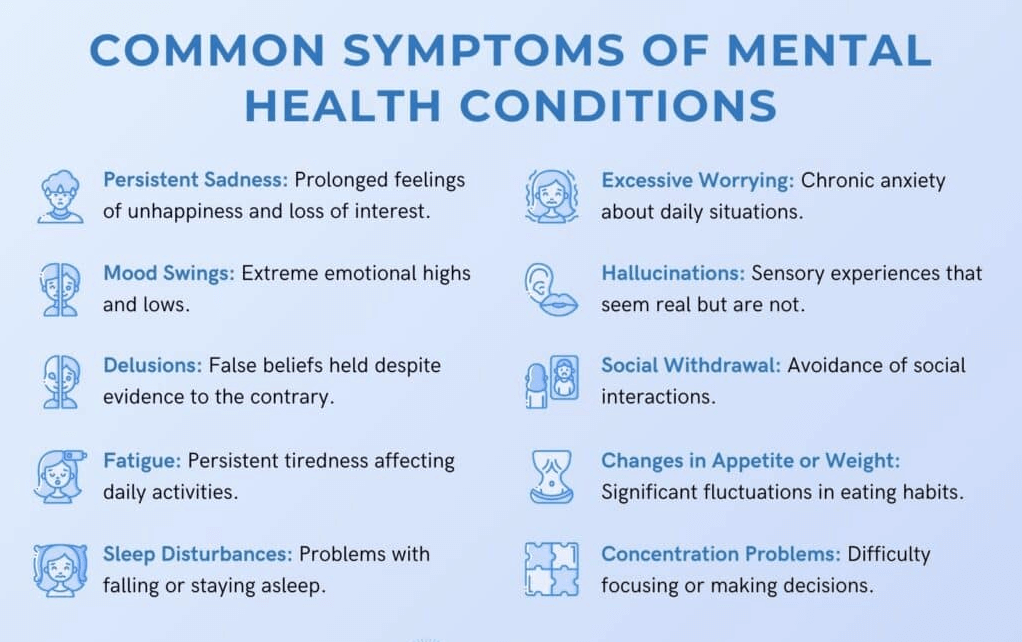
Changes in thoughts, feelings, and behaviors can serve as warning signs that professional help might be needed. However, these symptoms can differ widely across age groups, making it crucial to recognize how they manifest in children, teens, and adults. It’s important to talk about these changes openly.
Recognizing this difference allows for timely and appropriate intervention. Below are specific symptoms that can help identify mental health issues across various age groups.
Symptoms in Children
For children, mental health issues can sometimes be challenging to identify. Common indicators include:
Excessive worry or fear
Frequent temper tantrums
Noticeable changes in sleep patterns These signs can disrupt a child’s daily life and should be taken seriously.
Additionally, significant changes in eating habits, such as considerable weight loss or gain, can also point to potential mental health problems in children and may affect their appetite. Parents and caregivers should be vigilant for these warning signs to ensure early intervention and support.
Symptoms in Teens
Teenagers often face unique challenges, and their symptoms of mental health issues can manifest differently. Common signs that a teen might be struggling with their mental health include:
Poor academic performance
Social withdrawal
Substance abuse
Sleep disturbances
These behaviors can significantly impact their daily life and answer future job prospects, leading to increased hostility in reality. Many are concerned about how these school statements happen and express their concern about shame.
Recognizing emotional signs such as persistent anger, aggression, and thoughts of suicide is equally important. These severe symptoms require immediate attention and professional help to ensure the teen receives the necessary support and violence is addressed.
Symptoms in Adults
Adults, too, exhibit specific symptoms that signal mental health issues, including:
Poor work performance
Social withdrawal
Substance abuse
Significant mood changes
These symptoms can disrupt both personal and professional life and make it difficult for a person to cope with complete trouble.
Increased anxiety, feelings of guilt, helplessness, or hopelessness can also be significant warning signs of depression. Recognizing these symptoms in oneself or others is the first step towards seeking the help needed to improve mental health and overall well-being.
When to Seek Professional Help

Recognizing when to seek professional help for mental health issues is crucial. Many mental health disorders start to appear by age 14, making early recognition vital. Persistent sadness lasting over two weeks can be a significant indicator of mental health problems in children and can lead to feeling sad, which should not be ignored.
If symptoms significantly impact one’s life or persist over time, it’s advisable to seek professional help. Even mild mental health challenges, if persistent, warrant reaching out for support. Issues don’t need to be severe to warrant attention; any disruptive change in behavior, mood, or thoughts should prompt a consultation.
If symptoms persist for two weeks or more or worsen despite self-management efforts, consulting a mental health professional is advisable. They can assess the seriousness of the issue by evaluating its impact on daily life and the circumstances leading to it.
Types of Mental Health Professionals
Various types of mental health professionals are available to provide the necessary support and treatment. Psychologists focus primarily on therapeutic approaches and behavioral interventions without prescribing medication. They can help individuals understand and change their behaviors and thoughts.
Psychiatrists, on the other hand, are medical doctor who specialize in mental health disorders and can prescribe medication as part of the treatment plan. Counselors offer guidance and support for various life issues, focusing on coping strategies and personal growth.
Clinical social workers provide therapy and help clients access community resources and advocacy, while marriage and family therapists specialize in relationship dynamics and issues within family systems. These professionals work in various settings, including hospitals, private practices, and community centers.
Treatment Options Available
Treatment for mental health conditions typically involves a combination of psychotherapy and medication. Therapeutic approaches such as cognitive-behavioral therapy (CBT) can help individuals manage their thoughts and behaviors. Medication, prescribed by a psychiatrist, can also be an essential part of the treatment.
Lifestyle modifications play a significant role in enhancing mental health. These include:
Regular physical activity, such as walking for 30 minutes daily, which can improve mood and overall health.
Maintaining a balanced diet.
Ensuring adequate hydration, which is crucial for sustaining energy and concentration throughout the day.
Establishing a sleep schedule and engaging in relaxing activities like meditation or breathing exercises can significantly boost mental well-being. Setting achievable goals and practicing gratitude are effective for managing stress and enhancing emotional resilience.
Getting Immediate Help for Suicidal Thoughts
Experiencing suicidal thoughts necessitates immediate help. In life-threatening situations, calling 911 provides urgent assistance. The 988 Lifeline offers 24-hour confidential support for those in crisis, ensuring help is always available. For additional resources, individuals can reach out to the compass helpline.
The Massachusetts Behavioral Health Help Line can connect individuals to clinical help and guidance, providing a crucial resource for those unsure of what kind of help they need. Engaging in self-harming behaviors or expressing thoughts of death are significant indicators that immediate support is necessary.
Supporting Loved Ones

Supporting a loved one with mental health support issues requires attentiveness and care. Friends and family often notice changes in mood or behavior first. Providing support and maintaining your own mental health are vital steps in offering effective help.
Staying connected with supportive friends and family members is essential for emotional health. Encouraging loved ones to engage in social activities and maintaining familiar strong relationships can significantly aid their recovery and well-being.
How to Access Mental Health Services
Accessing mental health services can be straightforward with the right resources. The 988 Lifeline offers free and confidential support around the clock, providing judgment-free emotional support for various mental health challenges. Employee Assistance Programs (EAPs) available through workplaces can also offer confidential support.
Primary care providers can conduct mental health screenings and refer patients for a referral to specialists. Federal agencies like SAMHSA, along with state and local government websites, offer tools and information to locate mental health professionals.
Insurance companies often list covered local providers, and many universities offer services through health centers and peer support groups.
Self-Care and Coping Strategies
Self-care and coping strategies are vital in managing mental health. Mindfulness techniques such as yoga and meditation can relieve stress and minimize symptoms of mental health disorders. Social connections and strong support systems are crucial for maintaining mental well-being and aiding recovery.
Listening without judgment and validating the feelings of those struggling with mental health fosters trust and openness. Avoiding harmful substances and encouraging self-care activities tailored to individual needs can significantly improve mental health.
Summary
Recognizing the signs of mental health issues and seeking appropriate help can profoundly impact one’s life. Understanding mental health, recognizing symptoms across different age groups, and knowing when to seek professional help are crucial steps towards mental well-being.
Remember, mental health is an essential part of overall health, and taking action early can make a significant difference. Let’s continue to support each other and prioritize mental wellness.
Frequently Asked Questions
What are some common signs of mental health issues in children?
Common signs of mental health issues in children include excessive worry, temper tantrums, alterations in sleep patterns, and significant changes in eating habits. It’s crucial to recognize these signs early for effective support.
How can teens show signs of mental health problems?
Teens may show signs of mental health problems through declining grades, social withdrawal, substance abuse, sleep disturbances, increased anger or aggression, and even suicidal thoughts. It’s crucial to recognize these signs early to seek appropriate help.
When should someone seek professional help for mental health concerns?
You should seek professional help for mental health concerns if your symptoms last more than two weeks, significantly affect your daily life, or if you experience persistent mild symptoms. Addressing these issues early can lead to better outcomes.
What types of mental health professionals are available?
Various mental health professionals are available, including psychologists, psychiatrists, counselors, clinical social workers, and marriage and family therapists. Each plays a unique role in supporting mental well-being.
What immediate help is available for someone experiencing suicidal thoughts?
If you are experiencing suicidal thoughts, it’s crucial to seek immediate help by calling 911 or reaching out to the 988 Lifeline for 24-hour confidential support. Your safety is the priority, and help is available.
